On an African safari, we see hippos lazing in the water with the tips of their ears and eyes poking out and the occasional spout of water as they take their next breath. But some of us working in the safari industry in Botswana discovered another side to these animals while on a weekend away in Hwange National Park in Zimbabwe. Written by: James Wilson and Tim Frayne
After an exceptional shortage of rain during the wet season, the heavens opened for two consecutive days in April. After waiting the whole morning for the downpour to subside, we realised that we were waiting in vain and decided to pack a lunch and set out for one of the many game-viewing hides strategically placed above a waterhole.
What transpired was a scene like no other – none of us had ever experienced such a thing.
As the rain continued to pour, it became apparent that a mother hippo (separated from the pod) was suckling her newborn calf. On closer inspection, we saw that the hippo calf was only a couple of days old and had not yet been introduced to the rest of the pod. Mother hippos usually isolate themselves from the pod to give birth and slowly introduce the calf when ready. Fortunately, we arrived when she revealed her calf to the pod – a special experience.
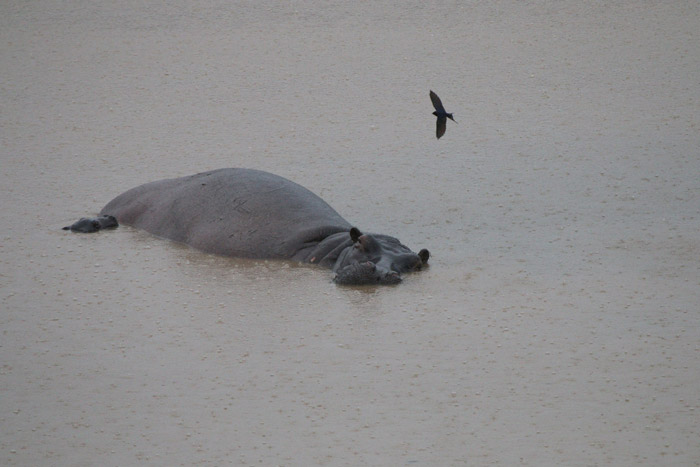
Slowly, the hippo mother exited the water to the waterhole’s edge. Almost instinctively, other pod members inquisitively made their way to the water’s edge. Three or four family members came out of the water and proceeded closer to the mother and calf. While the mother was protective of the calf, she did not try to keep the other hippos from coming too close as it wobbled precariously during its first steps on land.
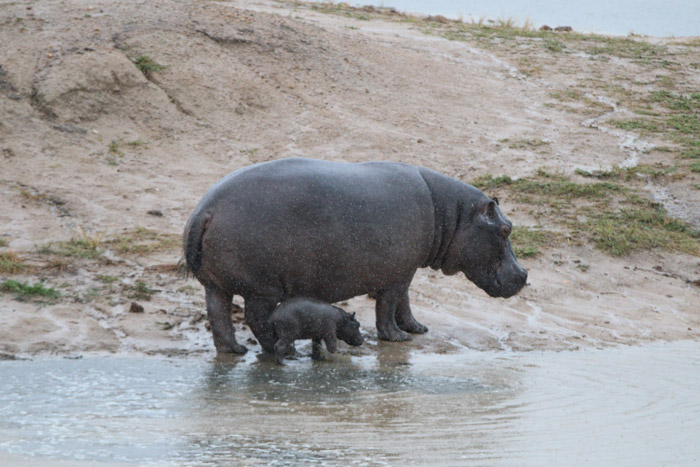

For no apparent reason, the mother began backtracking and quietly returned to the water, while the other hippos that came to inspect the newcomer also backtracked to the water.
Something was about to go down.
A scene of complete chaos ensued that none of us expected after such a touching family moment. As if the incessant tapping of the raindrops on the tops of their heads had caused them to lose all sense of control, they attacked the mother. Three adults launched towards her and sent her fleeing for safety into the deeper water of the waterhole.
After this battle, the calf was left stranded on the other side while the hippos continued to target the mother. After about two minutes of the mother defending herself and the deafening grunts and groans of the fight, things began to settle down again.
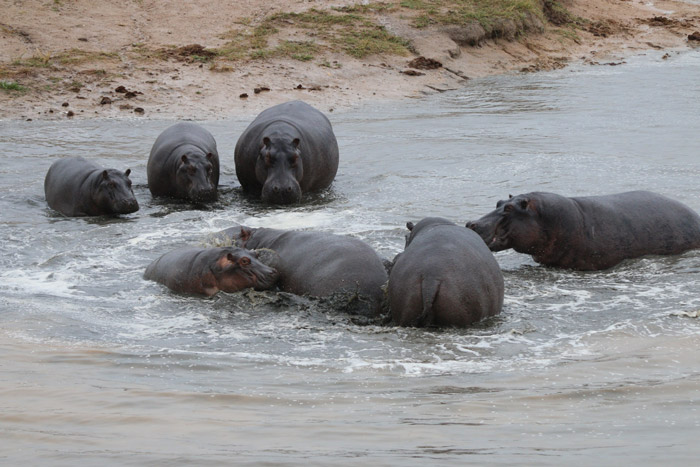
Suspecting the hippo calf might be in trouble, we watched as a few adult hippos cornered the mother on one side of the waterhole while about seven hippos began moving in on the calf. We’ve seen dominant bulls attack younger male hippos that may threaten their dominance, but here both males and females seemed to have a collective plot to attack the calf.
Chaos ensued once more as they lunged for the helpless calf and flung it into the air. This set off the rest of the pod, and the scene turned to carnage, the small waterhole becoming a whirlpool of blood and drama. The mother watched helplessly as the entire pod attacked and slaughtered the calf. Each adult fought for an opportunity to attack the calf, pulling it from one side of the waterhole to the other.
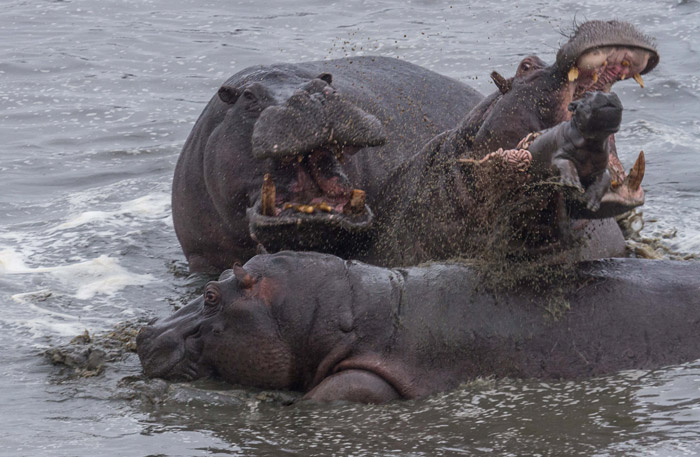
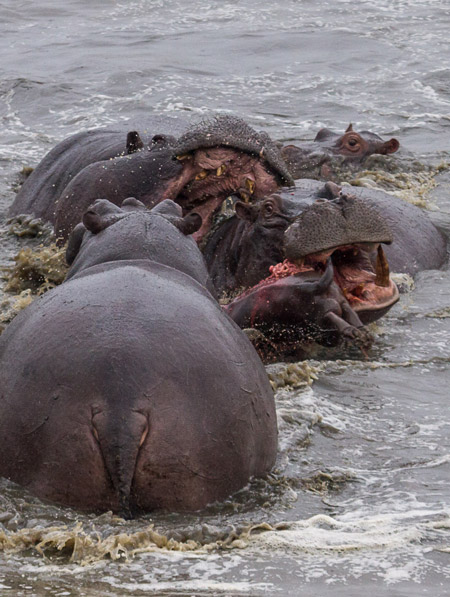
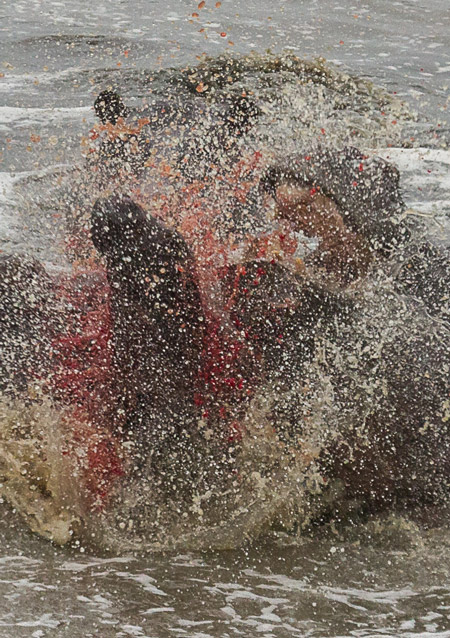
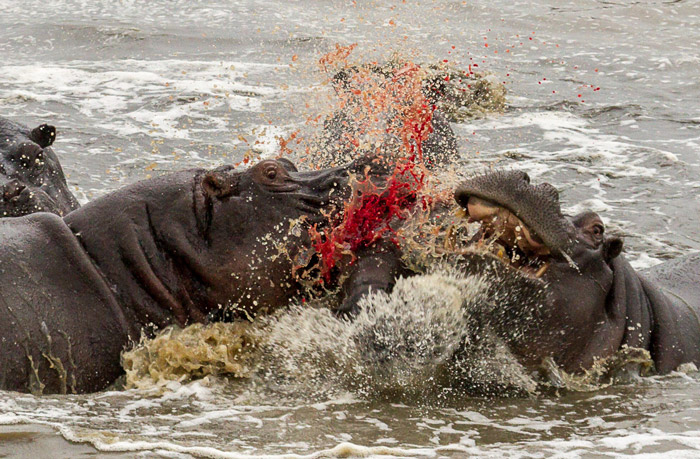
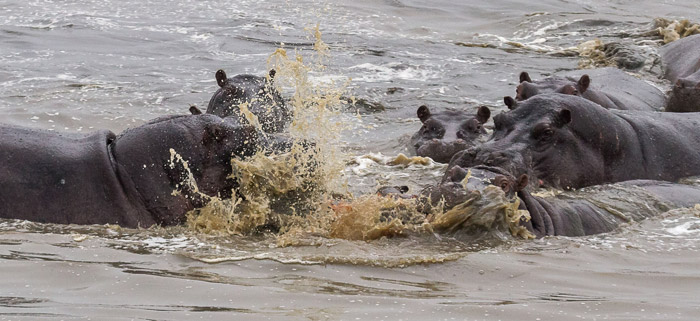
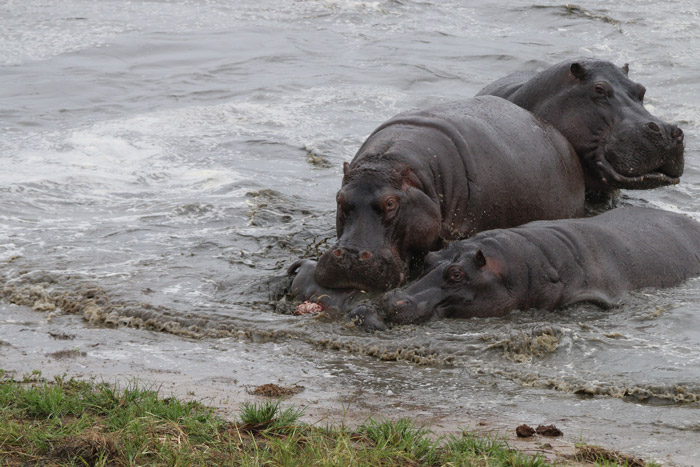
Even the most seasoned guides felt a little traumatised by the sight of the baby hippo killed.
We’re not sure exactly what possessed the hippos to do this and how they did it. They may know the pressure on the pod every dry season as water dwindles in the waterholes. Perhaps this female had migrated from another region last season and wasn’t fully accepted by the pod.
The point is that this is the reality of life and death in the African bushveld. Like everything in nature, the carcass made for much-needed sustenance for the resident crocodiles, terrapins and fish. Although all a little startled by what we had just seen, we knew we had been fortunate enough to witness an incredible natural moment while on safari.
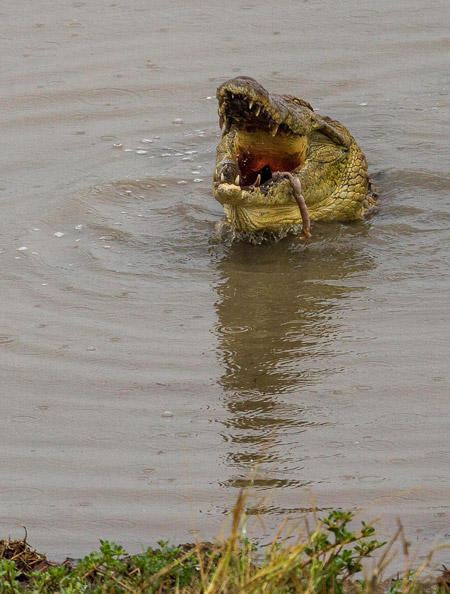
Watch: Hippo commits infanticide
To comment on this story: Login (or sign up) to our app here - it's a troll-free safe place 🙂.![]()








